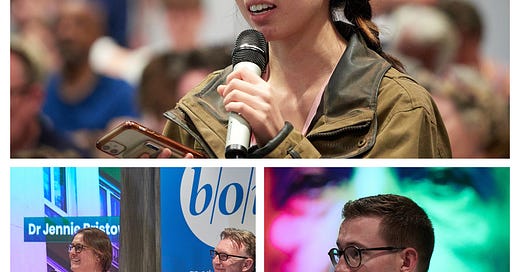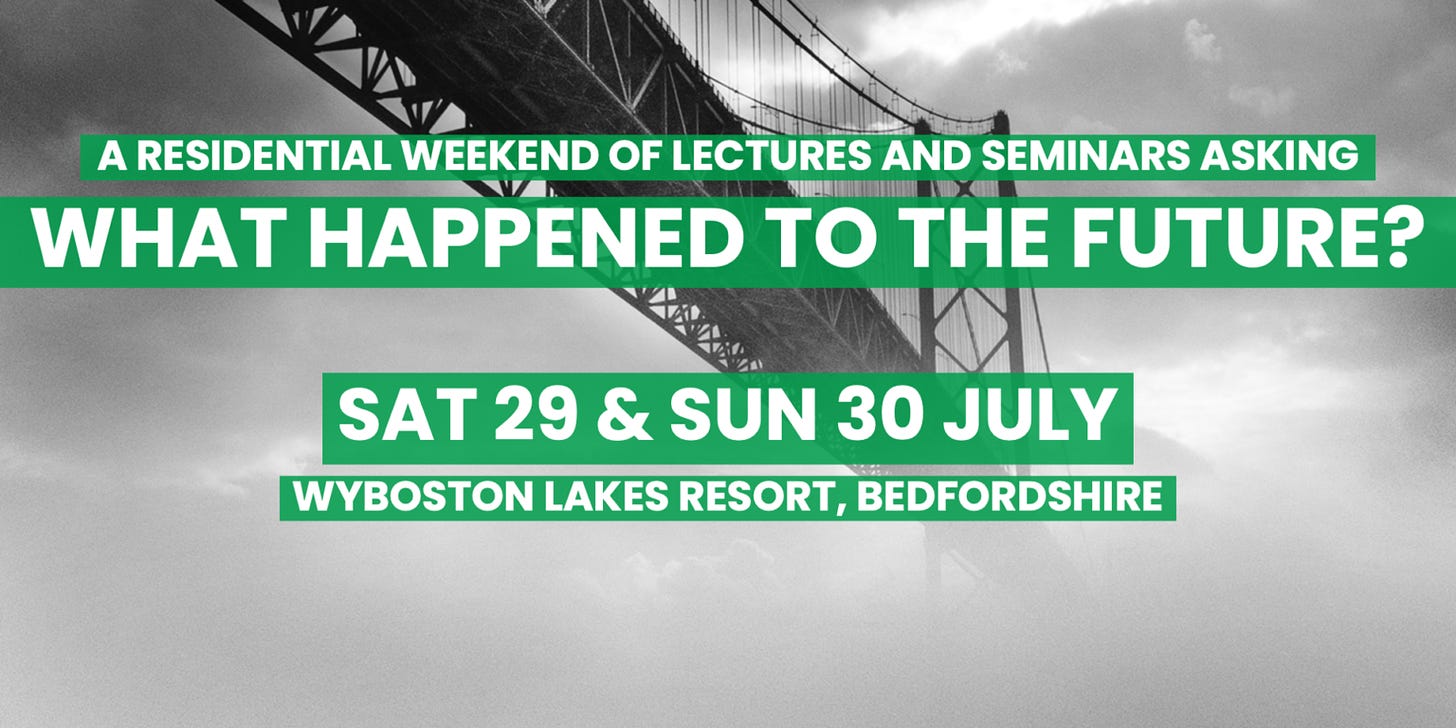Challenging fatalism: Is a better future now part of the past? Last chance for Academy early bird tickets
Last 24 hours for the earlybird ticket offer for The Academy 2023. Join Ideas Matter charity and lecturers such as Frank Füredi and Sherelle Jacobs for an in-depth weekend of lectures and discussions tackling the disappearance of the future. Tickets here.
It’s become very popular to talk about the UK as being defined by a long period of ‘managed decline’. In fact, this is how many people talk about societies right across the western world. Few question the idea that our best days are now behind us and that, from infrastructure projects to education, or from birth rates to innovation, decline and stagnation is the order of the day.
Such pessimism can be quite attractive. Indeed, it has some impressive names attached to it. Not only does it seem more honest than boosterish and shallow statements from politicians who promise, emptily, that a ‘return to growth’ is just around the corner, but it also, seductively, consoles us to our lot. There is no need to summon the energy to grasp the political nettle if we are all doomed anyway. Pessimism offers a rather convincing excuse for our intellectuals to bemoan the current order, and throw their hands in the air and insist nothing can be done. It is the opium of the elites.
There is no denying that we face serious and structural issues right across society. To name but a few: our economies are sluggish and unproductive, it seems impossible to get anything built, education is failing young people, governments are on track to grab ever more totalitarian powers for themselves, moral life is beset by confusion, and Western powers are confronted by increasingly assertive autocratic regimes. We have to take these challenges seriously.
But it is not just a moral imperative to resist the temptation to pessimism. It is also a practical one. The issue with predictions of doom is not that they are true, but that they can become true. In other words, apathy or pessimism have a self-fulfilling quality to them. Without confidence in the future, without an inspiring vision of what life might be like, however clever of technically competent our societies are, we will be unable to respond to the challenges of our time. This is because human beings are fed not just on bread but also on spirit.
Thankfully, we do not have to just dream of a better world. We see around us this yearning for change. From trucker’s movements to the farmer’s revolts, or from the crystallising movement against the new elite to the growth of small scale popular discussion groups like politics in pubs - there’s a tremendous appetite for change and a widespread refusal to accept decline. For all the temptations of fatalism, I’d far rather be throwing my lot in with these movements.
Because what is the alternative? The intellectual pessimism I’ve discussed, for all its words, never reaches beyond the level of an internet meme: it’s over, they say. This is a crisis of confidence masquerading as an intellectual critique. Others turn to increasingly outlandish fears (fantasies?) of global apocalypse, whether its led by climate change or Artificial Intelligence. We can dismiss this doomsdayism in the same terms we’ve dismissed it before: filling a psychological need for absolute certainty amid times of change and uncertainty. Some take refuge in grand conspiracies, which is hardly surprising given the scale at which we have been lied to but not for that reason justifiable; we cannot hide from reality.
But perhaps one of the most perverse responses to the disfunction of our societies has been a turn to self-loathing. Figures on both the right and the left think they see in Russia or China a positive alternative to Western societies. Putin is not, to them, a rather desperate aging autocrat, wildly disorientated by spending too much time in the depths of the Kremlin library during covid, but instead the only one to dare to puncture Western hypocrisy. The scale of surveillance in Xi’s China might be a little frightening, but look at the growth rates and number of new train lines!
For those of us who find all of this rather distasteful, and who would rather not turn our back on the legacy of Western civilisation just because things at home are a bit difficult, we have a big job ahead. At this year’s Academy we want to make a start on that job, by thinking through with seriousness and debate the origins of our present crises - and by inspiring ourselves with some of the tradition that we have a claim to inherit. Utopia, transhumanism, science fiction and great food and drink - all this is on the menu for our unmissable weekend at the end of July.
You can read much more about the programme here, and go to the tickets section of the webpage to get your discounted tickets for the next 24 hours. With great accommodation, tasty food, and fantastic company, a weekend ticket is a well-earned intellectual treat. We promise there will be enough food for thought (and for sustenance) to keep you thinking and inspired over the coming months, no matter the challenges we face.
I hope we’ll see you there.







